There’s been quite a lot of talk in the UK media about SwitchCo, the organisation tasked with switching from Analogue to Digital TV in the UK. Luke Gibbs of OfcomWatch wonders if it will come to life this week?
 It seems as though digital switchover has been going on for ages. And yet it hasn’t even begun – it’s just been a load of people talking about it!
It seems as though digital switchover has been going on for ages. And yet it hasn’t even begun – it’s just been a load of people talking about it!
Despite the Government announcing the creation of SwitchCo earlier in the year no-one has heard anything since. The only things we know for sure are that Barry Cox is the Chairman and some bloke called Ford Ennals is the Chief Executive. No website, no contact details, nothing – the proverbial blank screen. Perhaps it’s a precursor for what’s to come in 2012!
[ed. – an extremely limited site does seem to have emerged today!]
We also know that the Government remains committed to switchover. How? Because, the Labour Party election manifesto outlined the switchover process and thereby made both the process and timeframe an election pledge. So if you voted for Labour you voted for switchover. And if you didn’t vote for them or didn’t vote – well – tough luck they won the election.
Now, it’s possible that Labour will renege on its pledge. It’s certainly been known before for political parties to come into Government and do a spot of backtracking. Could this happen with switchover?
Well, later this week we may get some answers. On Thursday evening Secretary of State for Culture, Media and Sport, Rt Hon Tessa Jowell, MP, will make the keynote to the Royal Television Society’s bi-annual conference in Cambridge. As if Jowell hasn’t got enough high profile issues on her plate – licensing, Olympics, gambling – she also has digital switchover.
It is likely that in her keynote will offer a clearer vision of how switchover will take place and what SwitchCo’s role will be in making it happen.
After outlining the process it makes sense for SwitchCo to launch in earnest, publishing the technical and marketing plans for switchover. Will they be what the world has been waiting for?
 From a technical perspective switchover it is not going to be a walk in the park. A phased switchover to digital by geographical area between 2008 and 2012. And we’ll only know how many people might be unable to get digital television once the analogue signal has been turned off and the digital signal boosted.
From a technical perspective switchover it is not going to be a walk in the park. A phased switchover to digital by geographical area between 2008 and 2012. And we’ll only know how many people might be unable to get digital television once the analogue signal has been turned off and the digital signal boosted.
The technicalities of switchover will be critical to acheiving it. However, the marketing plan will also be essential to its success. Bringing the two strands together will be no easy task.
A successful switch to digital will release swathes of spectrum for re-allocation. But switchover also provides an opportunity to embed digital technology in the core of people’s homes – digital television is fundamental to acheiving the long envisaged, much touted Digital Britain.
So SwitchCo needs to be more ambitious in its aims than just pushing people to takeup digtial television. Digital television is just the beginning of digital enablement not the end of it.
There may be temptation to promote Digital Terrestrial Television (DTT) services such as Freeview over other digital services such as cable (D-Cab) or satellite (D-Sat) because it provides a low cost, convenient method of switching to digital television. However, it is also limiting as a digital technology, providing a few extra television channels and a low level of interactivity. Freeview might allow us to meet the proposed 2012 target but by then it will be out-moded.
It has already been stated that when SwitchCo does launch that it will take a platform neutral approach. So maybe we shouldn’t worry. However, switchover has the potential to become a political nightmare – and if it does there maybe a temptation to take the easiest possible route.
I am certainly not the first person to have pointed these things out. But I thought it was worth re-iterating ahead of various announcements this week, when potentially we will see an important new organisation emerge.
SwitchCo
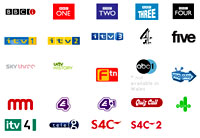 Ofcom has published its Digital Television Update for the third quarter of 2005, revealing that two thirds of UK households now watch digital television.
Ofcom has published its Digital Television Update for the third quarter of 2005, revealing that two thirds of UK households now watch digital television. The number of households with Freeview as their only source of digital television viewing was estimated at 5,775,000 – up by 600,000 homes during the quarter.
The number of households with Freeview as their only source of digital television viewing was estimated at 5,775,000 – up by 600,000 homes during the quarter. 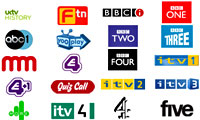 Digital cable subscribers now account for more than 2.6 million of the total cable television homes, increasing by more than 43,300 in the quarter, while subscriptions to analogue and digital cable television decreased slightly to just below 3.3 million in the quarter (due to a fall in analogue cable subscribers outweighing the increase in digital cable subscriptions).
Digital cable subscribers now account for more than 2.6 million of the total cable television homes, increasing by more than 43,300 in the quarter, while subscriptions to analogue and digital cable television decreased slightly to just below 3.3 million in the quarter (due to a fall in analogue cable subscribers outweighing the increase in digital cable subscriptions). Of interest to the media and communications industries will be the final report of the Martin Cave led
Of interest to the media and communications industries will be the final report of the Martin Cave led  The
The  Ofcom estimates that the digital switchover programme will release up to 112 MHz of spectrum in the UHF (Ultra High Frequency) band for new uses. The UHF band is prime spectrum, because it offers a technically valuable combination of capacity (bandwidth) and range.
Ofcom estimates that the digital switchover programme will release up to 112 MHz of spectrum in the UHF (Ultra High Frequency) band for new uses. The UHF band is prime spectrum, because it offers a technically valuable combination of capacity (bandwidth) and range. 3. The significance (or lack thereof) of these reports should be plainly stated. Similarly, if Ofcom is not necessarily endorsing a particular report’s conclusions, it should plainly state that fact. An ‘evidence-based’ regulator should be very clear as to how it treats these findings made by third parties. If the Scientific Generics report is not endorsed by the Ofcom Board, but it is merely one of many research inputs on the issue of digital switchover costs, then Walls’ claims are clearly overstated. However, it’s hard to blame the press when reports like these are published on the Ofcom website with no disclaimers, giving them the imprimatur of Ofcom approval.
3. The significance (or lack thereof) of these reports should be plainly stated. Similarly, if Ofcom is not necessarily endorsing a particular report’s conclusions, it should plainly state that fact. An ‘evidence-based’ regulator should be very clear as to how it treats these findings made by third parties. If the Scientific Generics report is not endorsed by the Ofcom Board, but it is merely one of many research inputs on the issue of digital switchover costs, then Walls’ claims are clearly overstated. However, it’s hard to blame the press when reports like these are published on the Ofcom website with no disclaimers, giving them the imprimatur of Ofcom approval. Ofcom, the UK uber-regulator, has today announced that they have removed the licensing restrictions on the frequency that radio frequency identification(RFID) tags use.
Ofcom, the UK uber-regulator, has today announced that they have removed the licensing restrictions on the frequency that radio frequency identification(RFID) tags use.  Partially arguing against the UK ban on advertising by organisations that attempt to “influence public opinion on a matter of controversy”, she says her group will challenge the ban. Allen is right in some respects when she says:
Partially arguing against the UK ban on advertising by organisations that attempt to “influence public opinion on a matter of controversy”, she says her group will challenge the ban. Allen is right in some respects when she says: The UK production and development community is in danger of losing out to competition from overseas if it doesn’t wake up to the potential of mobile TV, said Mark Selby, Nokia’s Global Vice President for Multimedia, (pictured right) at the inaugural Mobile TV forum in London today.
The UK production and development community is in danger of losing out to competition from overseas if it doesn’t wake up to the potential of mobile TV, said Mark Selby, Nokia’s Global Vice President for Multimedia, (pictured right) at the inaugural Mobile TV forum in London today. But many claimed that the lack of spectrum is holding DVB-H back in the UK.
But many claimed that the lack of spectrum is holding DVB-H back in the UK. 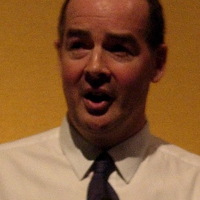 Digital One owns the UK’s only nationwide commercial DAB multiplex – but the capacity allocated for DMB is minimal.
Digital One owns the UK’s only nationwide commercial DAB multiplex – but the capacity allocated for DMB is minimal. From a technical perspective switchover it is not going to be a walk in the park. A phased switchover to digital by geographical area between 2008 and 2012. And we’ll only know how many people might be unable to get digital television once the analogue signal has been turned off and the digital signal boosted.
From a technical perspective switchover it is not going to be a walk in the park. A phased switchover to digital by geographical area between 2008 and 2012. And we’ll only know how many people might be unable to get digital television once the analogue signal has been turned off and the digital signal boosted.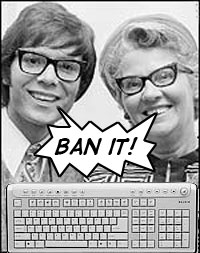 ‘The Man’ in the form of the EC wants to introduce regulation to the Internet by bringing in controversial rules to cover television online, according to a report in the Times.
‘The Man’ in the form of the EC wants to introduce regulation to the Internet by bringing in controversial rules to cover television online, according to a report in the Times. 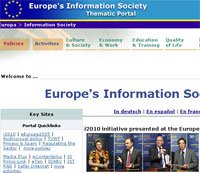 Internet-delivered TV is currently unregulated in the UK, so there is no compulsion for Web broadcasters to respect rules governing accuracy and impartiality or taste and decency that apply to all other analogue and digital channels.
Internet-delivered TV is currently unregulated in the UK, so there is no compulsion for Web broadcasters to respect rules governing accuracy and impartiality or taste and decency that apply to all other analogue and digital channels. 